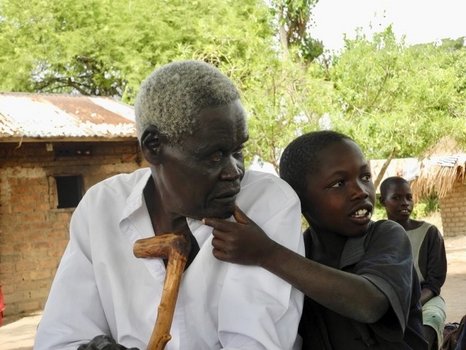
A blind grandfather with his grandson in Eastern Uganda. Photo: Susan R. Whyte
Susan Reynolds Whyte: Aging and Caring in Bunyole, Eastern Uganda
In rural Bunyole, good aging implies mutual care. Families are large, and resources are scarce and unevenly distributed. Material support (food, money, housing, medicines) is often taken as a concrete indication of virtuous care. This study will examine the radical uncertainties and moral reflections surrounding interdependence and the difficult obligation to share resources. It will engage with families I have known well for 47 years - people with whom I myself have aged. The approach will be pronominal; it will explore interactions between first, second, and third persons, singular and plural. (I engage interlocutors as you and together we may talk about her or them.) Pronouns are deictic in that they locate speakers within a context. The appreciation of positions is necessary where values and virtues are strived for, shaped and recognised between people. Postionality will illuminate bodies, homes, and lived time in Bunyole. Increasing debility is a first order experience, as well as a topic of conversation and object of care by others. Frailty and the need for help re-shape domestic arrangements, as people becomes less mobile and others move in to assist them. Lived time is understood in terms of genealogical and historical generations. Children and grandchildren come of age in a partly different world, which exacerbates the moral dilemmas of aging and care.